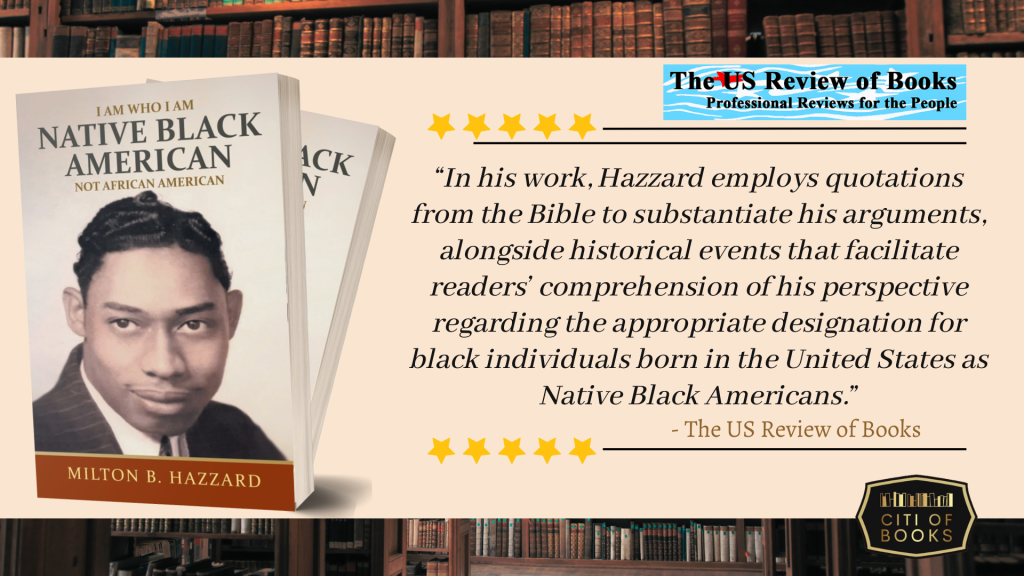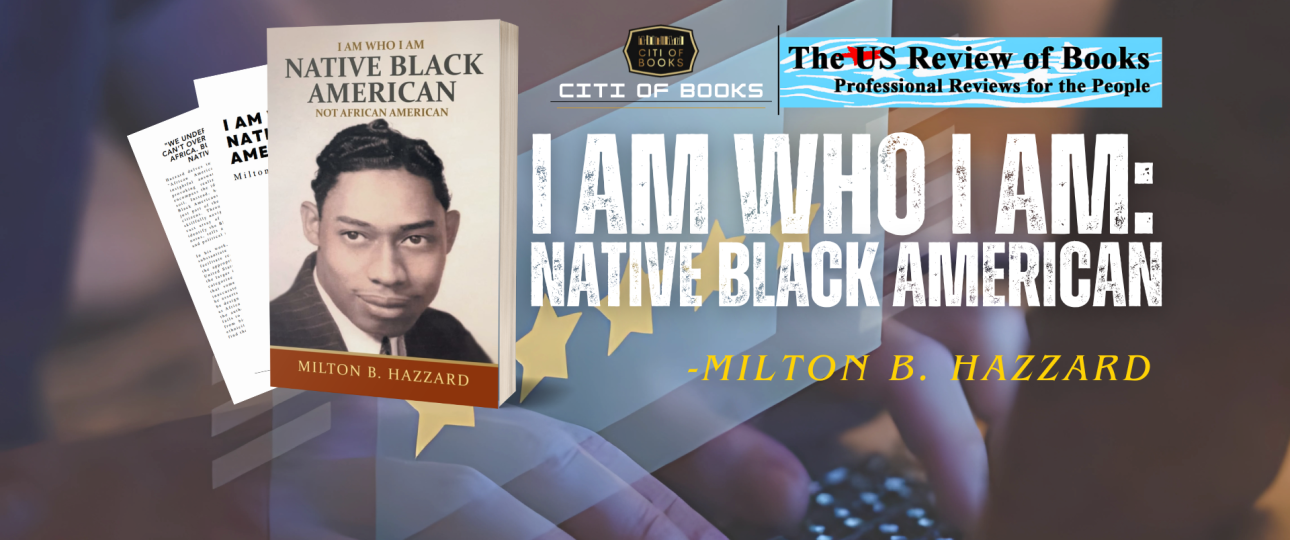
Book reviews provide a summary of the book’s content, evaluate its value, and recommend it to other readers. It increases the chances of gaining readers as well as increasing the visibility of the book. The more the book has a positive review, the more it gathers attention. The US Review of Books is one of the US-based contemporary book review publications run by professional reviewers and editors. They analyze every qualifying book that is released without regard for the work’s author or publisher.
The US Review of Books (USRB) reviewed Milton B. Hazzard’s book, “I Am Who I Am: Native Black American,” which was praised by Amanda Hanson after it was evaluated. The reviewer emphasizes, “Readers interested in studies on ethnicity or who are frustrated by inadequate racial labels may find themselves intrigued by the author’s unique viewpoint.”
CSM Milton B. Hazzard is a retired U.S. Army Command Sergeant Major. He is a Vietnam War veteran who holds Parachute and Air Assault badges. He served as the chairman of the Deacon Board for 12 years.
In “I Am Who I Am: Native Black American,” Milton B. Hazzard Jr. embarks on a deeply personal journey to explore the complexities of identity and the historical context surrounding the terminology used to define Black individuals born in the United States.
This thought-provoking work is not just a reflection of Hazzard’s own experiences but also a broader commentary on the evolving language that has often failed to capture the true essence of Native Black Americans. The cover features a powerful image of Hazzard’s father, symbolizing resilience and the rich heritage that has shaped his identity over generations.
Hazzard highlights a significant issue: for over 400 years, Black individuals in America have endured seven changes in the names used to identify their race. He suggests that these shifts may have been deliberate attempts to undermine racial unity among Native Black Americans and to marginalize their contributions to the nation.
The term “African American,” in particular, is critiqued for its ambiguity, as it can encompass individuals from various backgrounds, including those who are not native to the U.S. This raises important questions about identity and belonging, prompting readers to consider the implications of such classifications.
Through his writing, Hazzard calls for a reevaluation of the terms we use to define race and identity, emphasizing the need for clarity and respect for the unique experiences of Native Black Americans. “I Am Who I Am: Native Black American” is a powerful exploration that challenges readers to reflect on the significance of identity and the importance of honoring the true heritage of Native Black Americans.
Here is an excerpt from the US Review of Books that highlights:
“He ultimately arrives at the thought-provoking realization that this label fails to accurately encompass the identity of Black individuals born on American soil. Instead, he advocates for the designation of “Native Black Americans,” emphasizing that these individuals are not just part of the fabric of the nation but are its natural-born citizens.”


4 Comments
The way Milton Hazzard captures his personal journey in the context of racial and cultural identity seems so important, especially in today’s climate. The recognition from the US Review of Books seems well-deserved, and I hope more people explore the complexities of Native Black American identity.
I’m glad to see books like this receiving thoughtful reviews. Exploring the complexities of Native Black American identity is so important, and it sounds like Hazzard brings a unique and needed perspective.
It’s inspiring to see Milton B. Hazzard’s ‘I Am Who I Am: Native Black American’ receiving recognition from The US Review of Books. Stories like this that explore cultural identity and personal truth are so vital in today’s literary landscape. I appreciate how Citi of Books continues to spotlight works that challenge narratives and celebrate authenticity.
The cover featuring Hazzard’s father caught my eye, symbolizing resilience and heritage. Reading this on the subway made me ponder the power of names